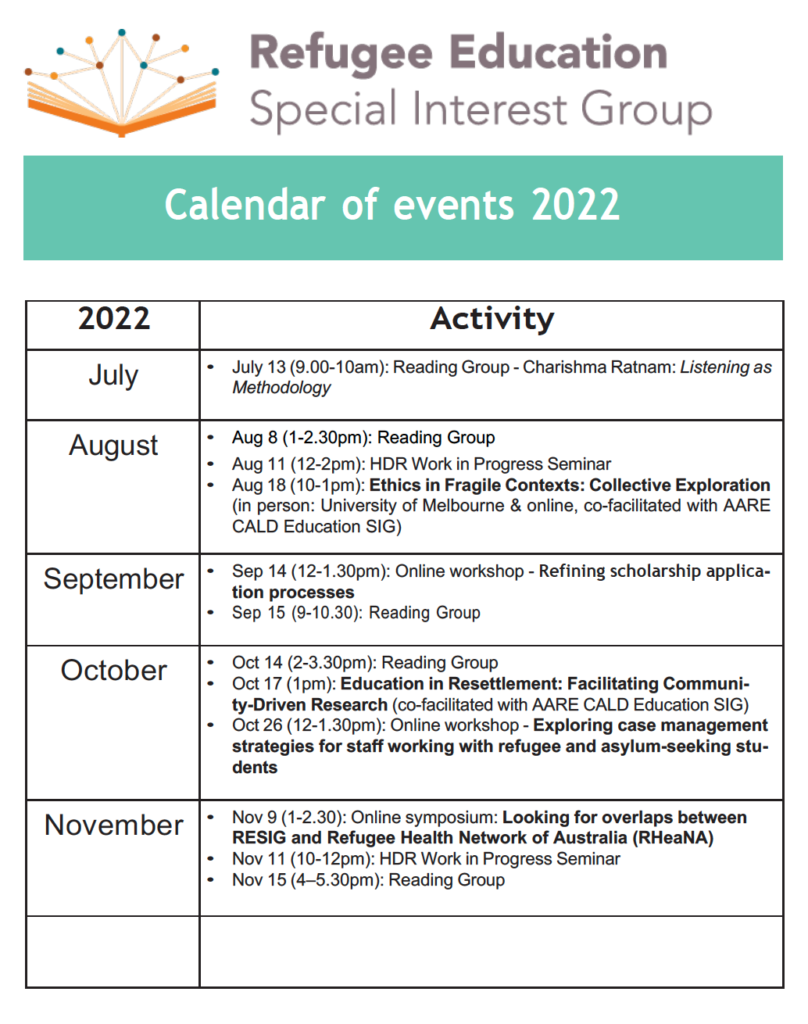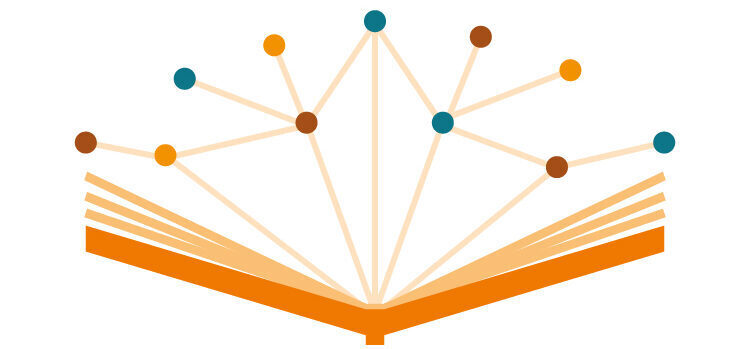
IN THIS ISSUE
Message from the Co-Chair – Dr Rachel Burke
Sara’s Story – Sara Rahimi
Interview with Dr Jen Couch – Dr Rachel Burke
Message from the Co-Chair
By Dr Rachel Burke
Reflecting on Refugee Week
Refugee Week 2022 provided an important opportunity for RESIG members to come together to collectively consider the changing political landscape, and explore new possibilities for greater and more equitable access to education for people with refugee and asylum seeker experiences.
At our Refugee Week Roundtable, we were joined by Asher Hirsch from the Refugee Council of Australia (RCoA), and Sonal Singh from Equity Practitioners in Higher Education Australasia (EPHEA). Critical points of discussion included possible educational implications of the federal government’s commitment to abolishing Temporary Protection Visas, the Universities Accord as an opportunity for advocacy, and the need for greater visibility of refugee background learners as an equity group across all educational sectors.
RESIG also delivered a professional learning session for EPHEA members, exploring evidence-based approaches to strengths-based, inclusive, and responsive educational practice for students with refugee and asylum seeker backgrounds. You can read more about our research here: COVID-19 online learning landscapes and CALDMR (Culturally and Linguistically Diverse Migrant and Refugee) students: Opportunities and challenges
Refugee Week 2022 also coincided with RESIG’s sixth anniversary and some change in our Steering Committee structure. Five members of our team have moved on to new challenges, and we express our heartfelt gratitude to them for their generous contributions. Sally Morgan, Hanne Worsoe, Abiola Ajetomobi, John Tran, and Karen Dunwoodie: we thank you for everything you contributed to RESIG and wish you every success in your new adventures!
We also welcome our newcomers to the steering committee: Lisa Hartley (Curtin University, Co-Chair), Fabiane Ramos, (Uni Southern Queensland, Students), Sherine Shallah (Talent Beyond Boundaries, NGO), Asmat Halimi (Deakin CREATe, Careers), David Delos Reyes (UNSW, HDR students), and Phillipa Bellemore (Macquarie, Newsletters). Thank you for taking on these roles!
Finally, please see the updated RESIG calendar for information on the various events we have coming up in the second half of 2022.
July Newsletter
Once again, it has been a great privilege to curate the RESIG newsletter and work with the wonderful contributors who have shared their personal journeys, updates, hardships, and successes. These newsletter contributions are timely reminders of RESIG members’ creativity, generosity, and commitment to educational equity, even in the face of great adversity.
In this edition, Sara Rahimi shares insights into her personal journey, her ongoing community engagement, and the importance of art as a medium for positive change. Jen Couch provides us with an overview of her research with young people, focusing on their leadership and activism during the lockdowns. Both of these contributions underscore the importance of community initiatives that support accessible knowledge exchange and outreach.
Wishing everyone a safe and healthy second half to the year,
Rachel
Sara’s Story
By Sara Rahimi
“It was time to say good bye. There is a very unclear image from the last few days in my mind nevertheless I remember this final scene very clearly, my sad grandmother watching our car get further and further from home. We were not happy to leave where we grew up and we were not sure about where we were going or what the future held. We were starting an unknown journey.”
Sara
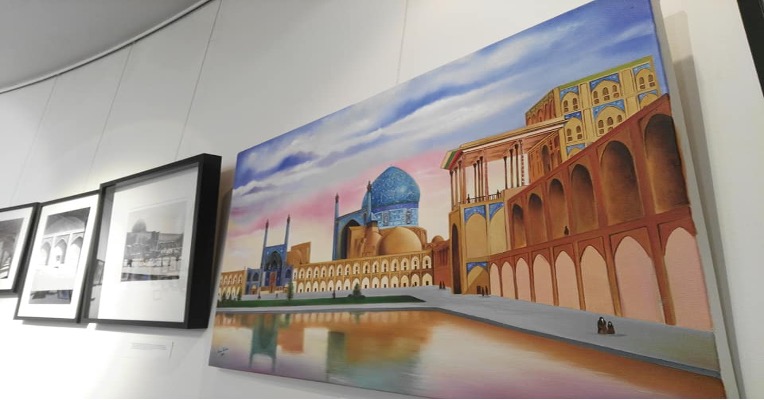
Sara is from Iran. She was born in a Baha’i family and is part of the Baha’i community which is one of the largest religious minorities in Iran. Baha’i’s believe in the progress of humanity and the oneness of all religions. Baha’i teachings promote unity and peace for all mankind. The Baha’i’s of Iran are in an unfortunate position which forces them to leave their home in order to live a normal life. For example, Baha’i students after high school are not permitted to go to university, and Baha’i’s are not allowed to work in many places.
“We left home and we went to Turkey and once there we applied to become refugees in Australia. We lived in Turkey for almost 2 years. Obviously this journey was very challenging. I arrived in Perth in 2004 with my family. We were very much excited to see the city which we wanted to build our new lives in. We had so much hope in our mind and heart but like all new arrivals we faced challenges like cultural differences, language barriers and of course we were very homesick.”
Sara
“If this will not suit, don’t stay mute, and transmute dictates of fate.”
Hafez
Days passed and we learnt to free ourselves from the burden of the past. We chose to stand up and use the opportunities that we were given here, opportunities that we did not have in Iran. We started learning English at central TAFE. After that I attended university and completed a degree in Urban Planning at ECU. I started my family and now I have 2 little kids.
Currently I work in the Education sector and for a program called ISOS at the Red Cross. During the ISOS sessions, I teach kids that people who come to this country have already travelled a long and difficult journey, understand them and respect their resilience and patience. Be kind and accept new students with all your heart. Many of them bring knowledge, culture, art and colour to this country. Many of them become very successful in study and work and could contribute to this land.
At the end of my presentation at schools I share a beautiful quotation from the Baha’i writings:
“The earth is but one country and mankind its citizens”.
In the end, we are all part of the human family and citizens of this beautiful land call Earth. No matter which race, colour, family, religion or country we are coming from. I invite all to compromise, practice kindness and unity.
Sara
Sara is an artist too and has joined a number of exhibitions during the last few years. She was successful in selling her paintings and she has plans to continue her work and promote a positive message throughout her art in the future. More information can be found at Sara’s Art Page.
Wish her luck.
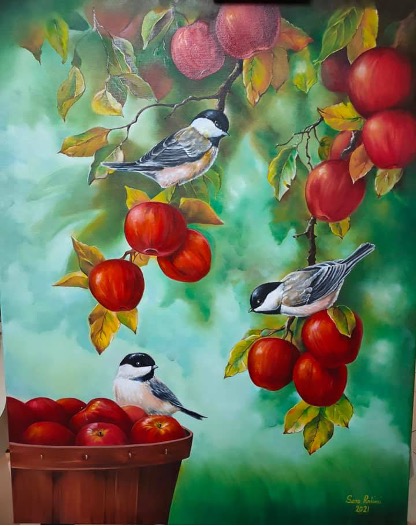

Interview with Dr Jen Couch
By Dr Rachel Burke
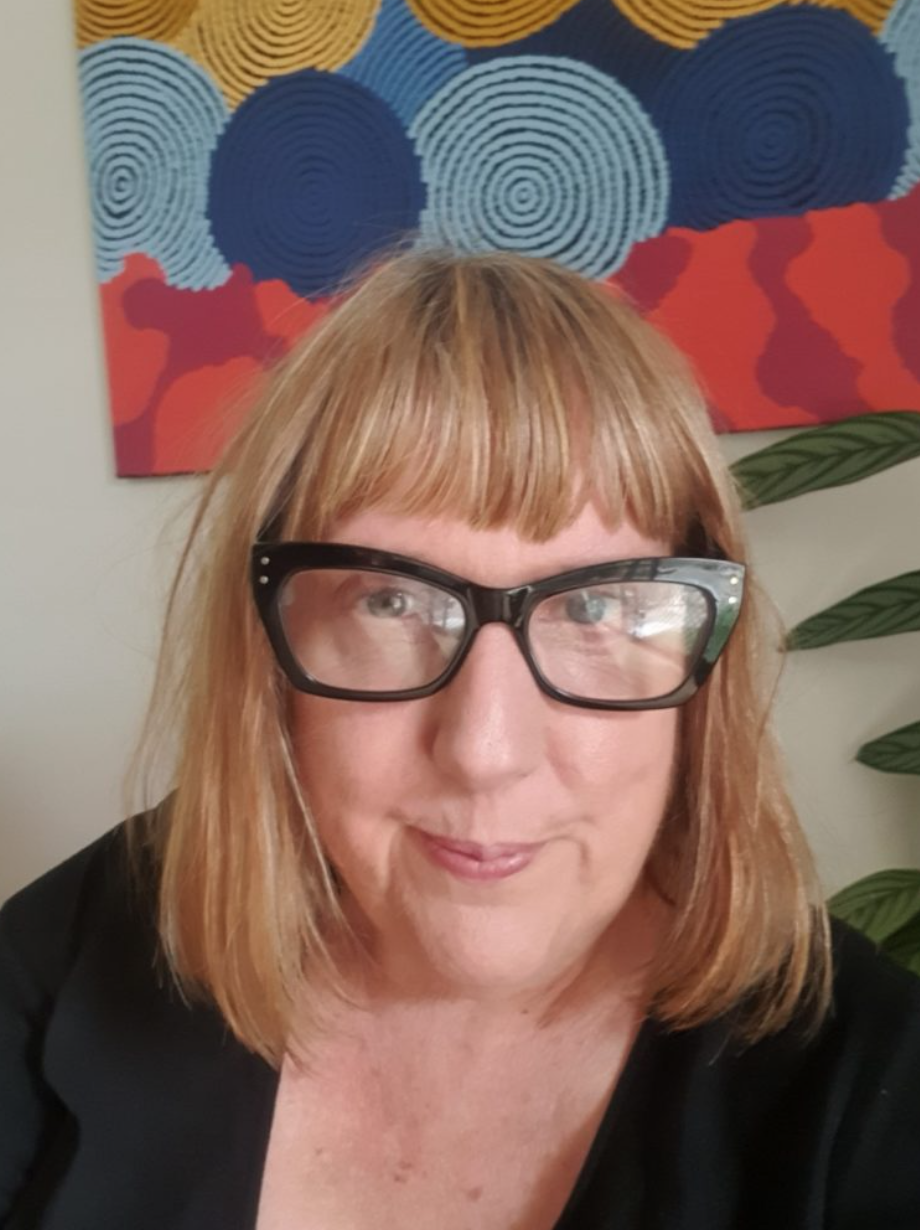
Dr Jen Couch is a senior lecturer in youth work and international development at Australian Catholic University (ACU), Melbourne. Jen has extensive experience working with refugee communities in Australia, Southeast Asia, and South Asia, has taught in refugee camps on the Thai Burma border, and is a key advocate for the prevention of homelessness among refugee young people. In this interview, Jen shares important insights from her recent research regarding young people’s experiences during the COVID-19 pandemic.
Rachel: Jen, along with colleagues, you’ve recently published important research entitled “Our voices aren’t in lockdown” – refugee young people, challenges, and innovation during COVID 19. Could you please provide RESIG members with some background to this work?
Jen: I did a longitudinal ethnographic study of refugee young people and homelessness in Melbourne, which finished up a couple of years ago. And then when COVID happened, I started talking to my colleague, Nadine Liddy, who was the coordinator of the Multicultural Youth Advocacy Network [MYAN]. We decided that we would try and document some of what was going on for young people.
Rachel: What were some of the significant themes in the experiences that young people shared?
Jen: So, what young people told us was that, particularly if they were more newly settled in Australia, they were caregivers to their family, brothers, and sisters, and even their communities. And they often took on the role of information provision.
So, young people were out there, they were networking, they were taking people to medical appointments, they were interpreting information for their parents, they were alleviating concerns, they were, you know, telling their parents about miscommunication to do with COVID, and transmission and all those things.
And a lot of them, they were providers. So, you know, often frontline workers. And by frontline workers, I mean, supermarkets, retail, and providing financially for their families. They were often struggling with education and balancing that.
Rachel: And were these experiences impacted by issues of housing or other social factors?
Jen: So, what came out really clearly was that a lot of young people are in situations of poor-quality housing, overcrowded housing, limited access to technology. And quite often technology in the house has been prioritised, too, so if there were, say, a brother doing year 12, or even year 10, and a sister doing year 11, the technology would often be prioritised to the brother. So, there was a kind of a gendered element to that as well. And young women being asked to care for their younger brothers and sisters, and that kind of thing. So definitely, a gender element to access to education there.
And I even have this with my own students [at ACU]. When we log on for classes, quite often, students are out in the car, or on their phones, you know, because there might only be one laptop in the house and there’s lots of kids. So really, really difficult situations.
Rachel: I really appreciate how your research regarding the intersectionality of factors that impact young peoples’ experiences in resettlement foregrounds each individual’s expertise, knowledges, and repertoires. How does this strengths-based approach become manifest in your teaching?
Jen: As educators, we have to be really mindful of the myriad of responsibilities that young people have. Particularly in universities with flexible entry points, we have first in family, low socio-economic, and refugee and migrant backgrounds. There’s a variety of contexts that students are coming from, and location and class and gender, and all those things, the tenants of intersectionality, really impact on how our students can access that online world of learning in the COVID world.
So, I think, yes, there’s initiatives of laptops, and of various other things, but I think it’s more about us having a real kind of understanding of the complexities of those students’ lives and making allowances and kind of translating, I guess, those realities into adjustments.
I found that when I reached out to students and said, you know, “Tell me what’s happening, how are you going, I can see that it’s, you know, looks really busy in your house”, and students would be so kind of appreciative that someone acknowledged the challenging circumstances that they were in. And they are able to say “You know, it would really help if I could do this…”
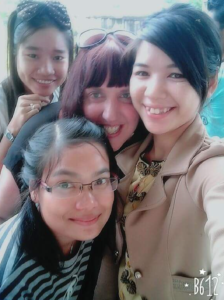
Rachel: And foregrounding the expertise of the individual student and their understanding of their own context?
Jen: A hundred percent, yes. I just think, even my training as a sociologist, and this is where kind of Raewyn Connell’s Southern Theory is really useful is that, you know, the theory that I try to apply in my kind of teaching, it’s taking those voices from what have been assigned as marginal spaces and bringing them into the centre.
Rachel: Your research also identified important pockets of hope and innovation in refugee background youth experiences and elevation of their voices during COVID, didn’t it?
Jen: Yes, we found that young people were really being innovative in this space. So young people were putting stuff online for other young people. There’s a really great video series that MYAN put out, ‘A Day in the Life of COVID’, where refugee and migrant people all over Australia filmed what their day was like living in lockdown. So young people were initiating a whole range of activities.
Rachel: Given that the events associated with COVID have foregrounded many of the existing injustices and exclusions regarding education for people with displacement experiences, what are some things that we could do, as a collective and as a society in general, to alleviate some of these pressures on young people?
Jen: Yeah, I mean, that’s a really good question. More broadly, outside RESIG, this research has really shone a light on the fact that young people are completely absent from discussions around public health messaging. And so, there was a lot of stuff in Melbourne around messages not getting through to multicultural communities and information that wasn’t being translated, etc.
But the other part of that reality was we found that young people are actually the people delivering the message to their communities and families, and the government was just completely targeting the wrong people. So, they were often targeting older community leaders and when you talk to young people they go, “What leaders in the community? We’re kind of leading the community because we’re actually the ones out there talking to neighbours, talking in mosques, providing information, countering all this false information that’s going on.”
So, we really need to support and create initiatives so that these young people’s voices can be heard, and that they can enter into leadership roles. Not just consultation, but proper leadership roles when it comes to public health initiatives within their community. So young people’s voices have to be amplified and taken seriously.
If you would like to read more about Dr Jen Couch’s work with refugee background communities, you can contact Jen at Jen.Couch@acu.edu.au. I extend my thanks to Jen for sharing her expertise and insights with RESIG members.
RESIG Events Calendar
